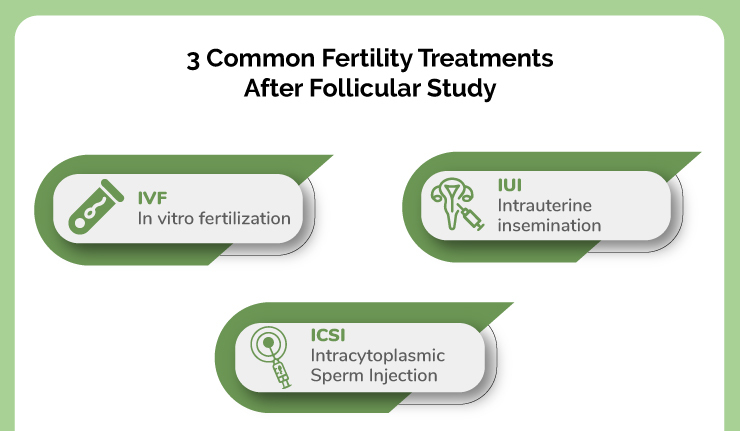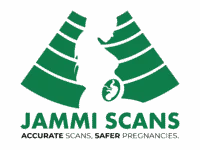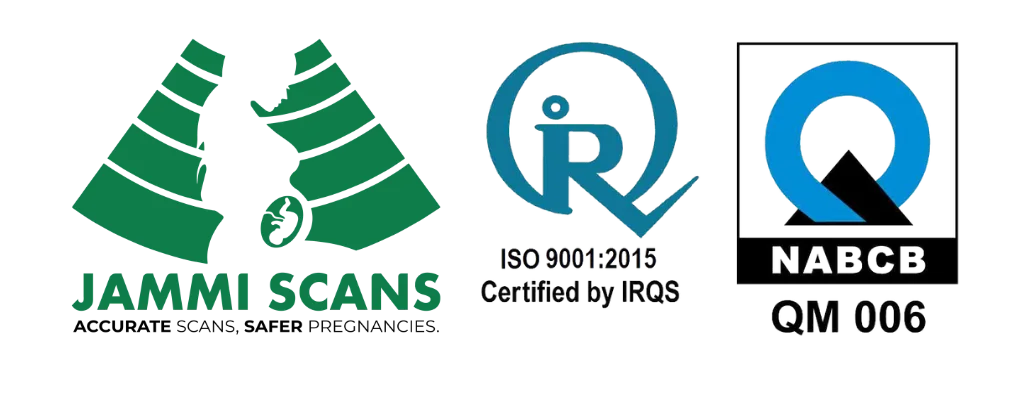Like every storm comes to an end, there is always the next step of treatments after follicular study scan if your doctor diagnoses you with a low probability of conceiving naturally.
After a follicular study, a patient might undergo the three most common fertility treatments.
Table of Contents
Toggle3 Common Fertility Treatments After Follicular Study
- IUI – Intrauterine insemination
- IVF – In Vitro fertilization
- ICSI – Intracytoplasmic Sperm Injection

IUI – Intrauterine-insemination
IUI is the first and the next step of treatment after a follicular study if your chance for natural conception is very low or not possible.
If you are below 35 or 40 years of age, your doctor would recommend fertility drugs or an IUI procedure.
This is a standard OP procedure and does not require any admission procedures.
This procedure begins by collecting the males’ semen samples and washing them in a way that separates the healthy sperms from the lower quality ones.
This is followed by monitoring a female’s ovulation cycle (done by a follicular study or other procedures prescribed by your doctor) and placing the healthy sperm directly in the uterus.
The overall idea of this procedure is, collecting the male’s sperm is collected and frozen before the ovulation period.
This procedure is usually performed in the couple under the below conditions,
- Mild male factor infertility
- Cervical factor infertility
- Ovulatory factor infertility
- Semen allergy
- Need of a donor sperm
- Endometriosis-related infertility
IVF (In vitro fertilization)
IVF is a process where the woman’s egg is fertilized outside her body and then placed inside her body to help her get pregnant.
Your mature eggs identified during the follicular study are collected from ovaries and fertilized by sperm in a lab.

Then the fertilized embryo (eggs) are transferred into the uterus by an invasive procedure.
If you are below 40 years of age, IVF would be recommended only if you have already tried fertility drugs or IUI procedures before.
IVF is recommended as the primary treatment only if you are above 40years of age or in case of underlying health conditions like,
- Fallopian tube damage or blockage
- Genetic disorders
- Ovulation disorders
- Uterine fibroids
- Impaired sperm production or function
- Previous tubal
- Sterilization or removal
ICSI (Intracytoplasmic Sperm Injection)
IVF and ICSI are similar procedures where the egg is fertilized by the sperm, keeping them in a lab.
The main difference between IVF and ICSI procedures is how the sperm fertilizes the egg.
In IVF, the egg and sperm (of which there are many) are left in a laboratory dish to fertilize naturally. In ICSI, the selected sperm is directly injected into the egg to get fertilized.

ICSI is generally recommended for any of the following conditions,
- Sperm can’t move properly or are abnormally shaped.
- The sperm count is very low.
- Failed IVF.
- The male has an injury, disease, blockage, or a genetic condition that causes difficulty in ejaculation.
- There are high levels of antibodies in the semen.
- When there is frozen sperm.
Be Prepared:
Get in-depth knowledge when your doctor discusses treatments after follicular study with you. Know about all the steps in the procedure and the cost involved.
Stay calm and confident. Don’t skip any procedures or medications during the process.
Your doctor would suggest repeating your follicular study four to six times to study your eggs for these advanced fertility treatments.
Don’t skip any tests, as this is one of the significant benefits of a follicular study in receiving or continuing your treatment.
Chennai Women’s Clinic is now Jammi Scans
Deepthi
Dr. Deepthi Jammi (Director, Jammi Scans) is a qualified OB/GYN and Post-Doc in Maternal Fetal Medicine. As a pregnancy ultrasound expert, she is passionate about healthy pregnancies and works towards spreading awareness on the latest diagnostic options available for parents to choose from. Dr.Deepthi has received gold medals and awards in Fetal Medicine at international and national conferences, and has appeared in numerous prestigious regional magazines and TV interviews.




